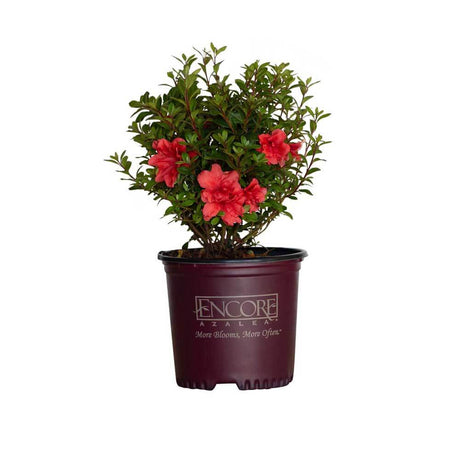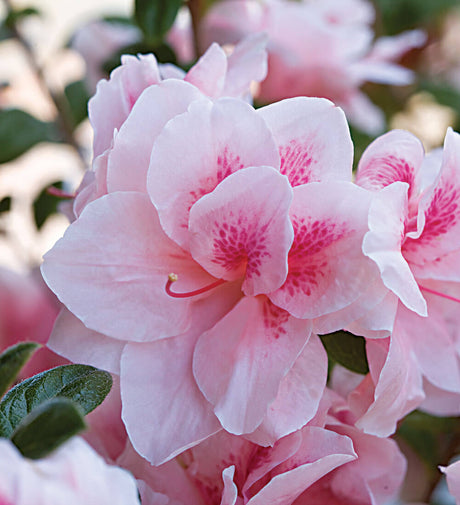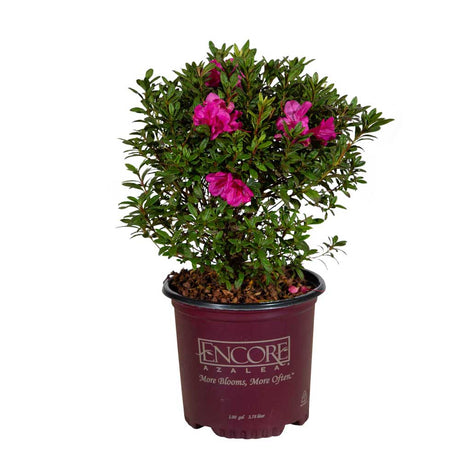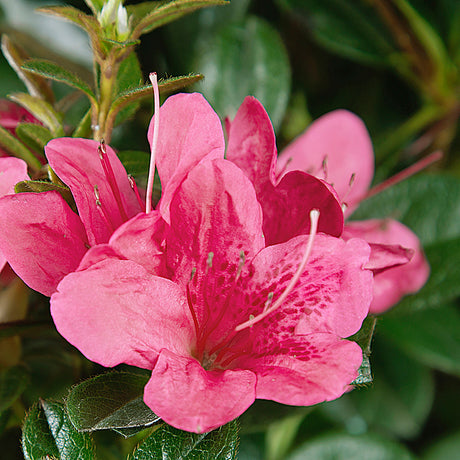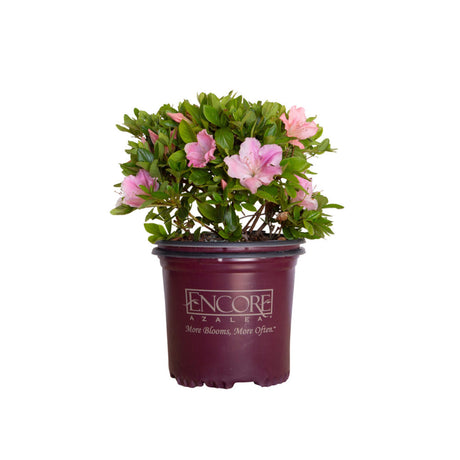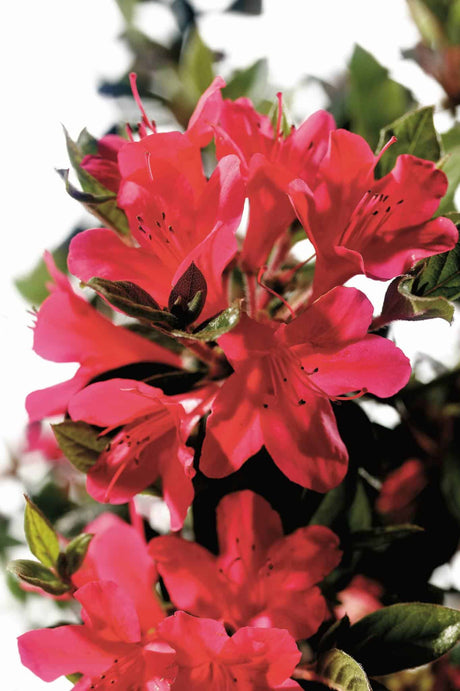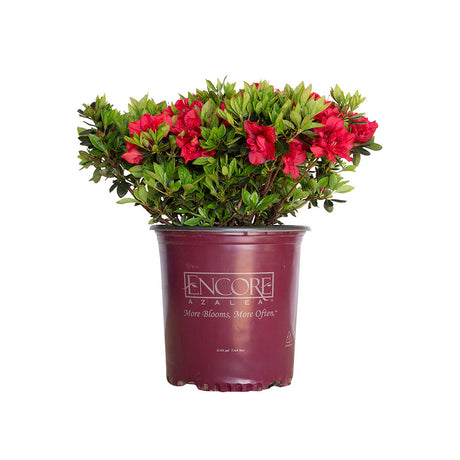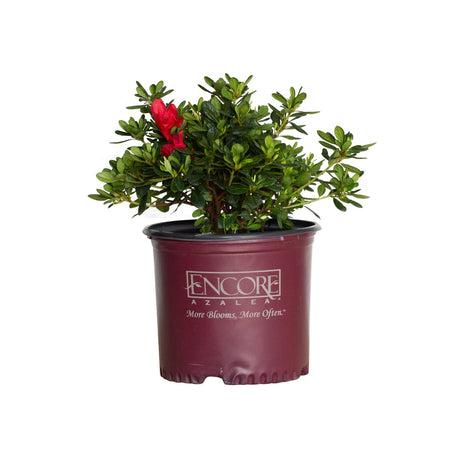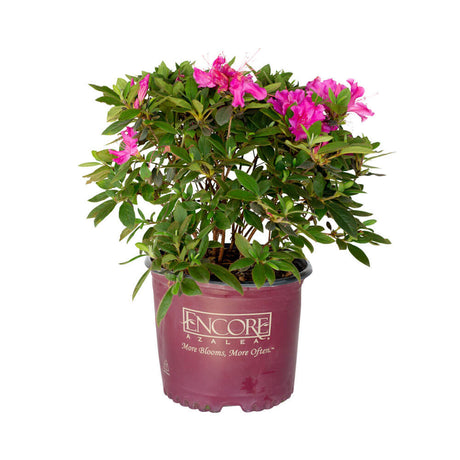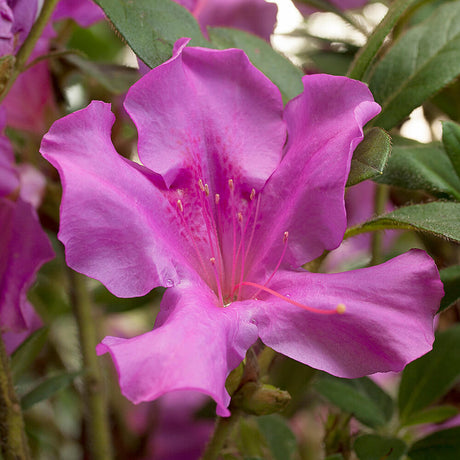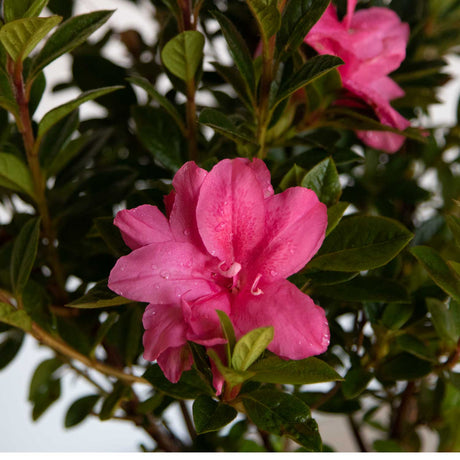FiltersFilter & Sort
- Up to 11% off
Encore Azalea
From $19.99$21.99Unit price /UnavailableIn stock (7182) - Up to 11% off
Encore Azalea
From $19.99$21.99Unit price /UnavailableIn stock (2697)
Looking for Encore Azaleas? Well, then you've come to the right place! We pride ourselves on our extensive selection of these reblooming beauties.
What are Encore Azaleas?
Encore Azalea is a collection of Azaleas. Encore Azaleas are the only patented azalea brand that blooms in spring, summer, and fall! Every variety in this collection is a rebloomer, but not every reblooming azalea is an Encore Azalea. It takes an extraordinary plant to be included in this collection. All varieties are either naturally dwarf or intermediate in size. Therefore, it's easy for you to find some that fit your needs perfectly.
History of the Encore Azalea
In the early 1980s, plant breeder and horticulturist, Buddy Lee, developed the first Encore Azalea. He noticed a tray of young azaleas blooming in the summer sun at his Louisiana azalea nursery. Because of this, he came up with the idea to cross-breed classic spring-blooming azaleas with rare summer-blooming azaleas from Taiwan. As a result, he created a multi-season blooming azalea. Fast forward to today, and the collection has 31 varieties in a wide array of colors, sizes, and shapes. Year after year, Encore Azaleas put on a flashy show of brilliant colored blooms!
Encore Azalea Care Tips
All Encore Azalea varieties require 4-6 hours of sun daily to grow and bloom properly. Alternatively, all-day lightly filtered sun works as well. These varieties require slightly acidic soil to properly absorb nutrients. If your soil is alkaline, supplement your soil with elemental sulfur to gradually lower the pH. All azaleas will likely struggle in unmodified heavy clay soil. Water your new plantings 2-3 times a week in average weather conditions. Be sure to soak the soil underneath them every time in order to encourage extensive root growth. If you've had a lot of rain or extensive drought/dry heat, increase or decrease watering accordingly. Which Variety Should I Choose? All types are consistent with their care requirements, so where one will grow well, generally another will too. There are essentially three ways to start when picking the right Encore Azalea for you. Selecting Encore Azaleas by Size The first way is to determine where you need to plant them and what you need them to do. This is the most effective way if you have a particular planting location in mind. There are two different size groupings, Dwarf and Intermediate. If you're going for a foreground planting in a mixed garden bed, or if you're planting around a small structure, we recommend starting off by looking at the dwarf varieties. They range between 2.5-3.5 feet tall at maturity. Therefore, you'll rarely, if ever, need to do any maintenance with them. On the other hand, if you would like to plant a medium-height hedge, a background element in a foundation planting, or a taller reblooming specimen plant, you should look at the intermediate-sized selections. They're ideal for these sorts of applications as they naturally range between 4.5-5 feet tall at maturity. Therefore, they're extremely easy to manage, while also being a larger element in the landscape. These two size groups really thrive together, fortunately. So feel to mix and match them. An intermediate-sized variety like the Autumn Royalty planted with the dwarf Autumn Ivory creates a really great reblooming display that you'll get to enjoy all-year-long.
Fall in Love with the Bloom
Go through the collection and look for a bloom that stands out to you. If you find one you can't live without, chances are you'll be able to find a spot in your landscape where it will fit like a glove thanks to their controlled growth.
Choose based on Cold-Hardiness
If you live in USDA Zone 6a or 6b, you'll need to make sure that you're selecting one of the cold-hardier varieties. Fortunately, there are 24 Encore Azaleas that survive in Zone 6b and 16 varieties that go down to Zone 6a! So if you are in one of these colder areas, start with the varieties that will actually grow in your zone. For a handbook that features all of the plant info, you could need and more, read PlantsbyMail.com's Encore Azalea Buying Guide. How to Plant: Determine your planting location based on the growing requirements and size specifications of your plant(s). Dig a hole three times the width of the pot that your plant came in. The hole should be deep enough that the top of the plant’s root ball is even with or slightly higher than the ground around it. Mix your native soil with some rich garden soil or composted manure to provide additional nutrients for your growing plant. These plants don't like clay-soil. This is because clay is naturally alkaline, incredibly dense, and it retains quite a bit of water. Meanwhile, Azaleas like acidic soil and they need good aeration and drainage around the roots. If your soil is clay-rich, we recommend mixing pine bark in with your native soil at a ratio of about 1:1. This will improve drainage and aeration. Then, treat your plant with a mild soil acidifier to help ensure that it is able to absorb nutrients properly. Place your plant in the hole and backfill it with your native soil mixture. We also recommend applying 3-4 inches of mulch around the base of your plant to help it retain moisture. Lastly, water your plant deeply to settle the soil and hydrate your plant. This is also a good time to fertilize your new planting. If planting in mid to late fall, use a rooting fertilizer. If you're planting in spring to early fall, use a slow-release acidic plant fertilizer. We do not recommend using a liquid fertilizer with new plantings. This is because removing your plant from the pot and planting it lightly damages outer roots. Liquid fertilizer will get in those damaged ends rapidly, which causes additional damage that may cause your plant to get off to a slower start in your garden.
Supplementary Reading:

